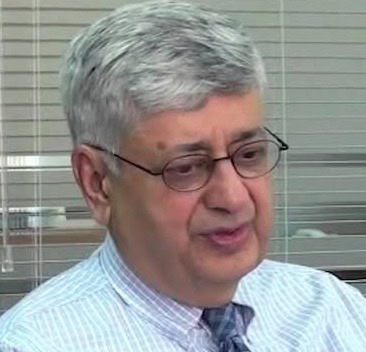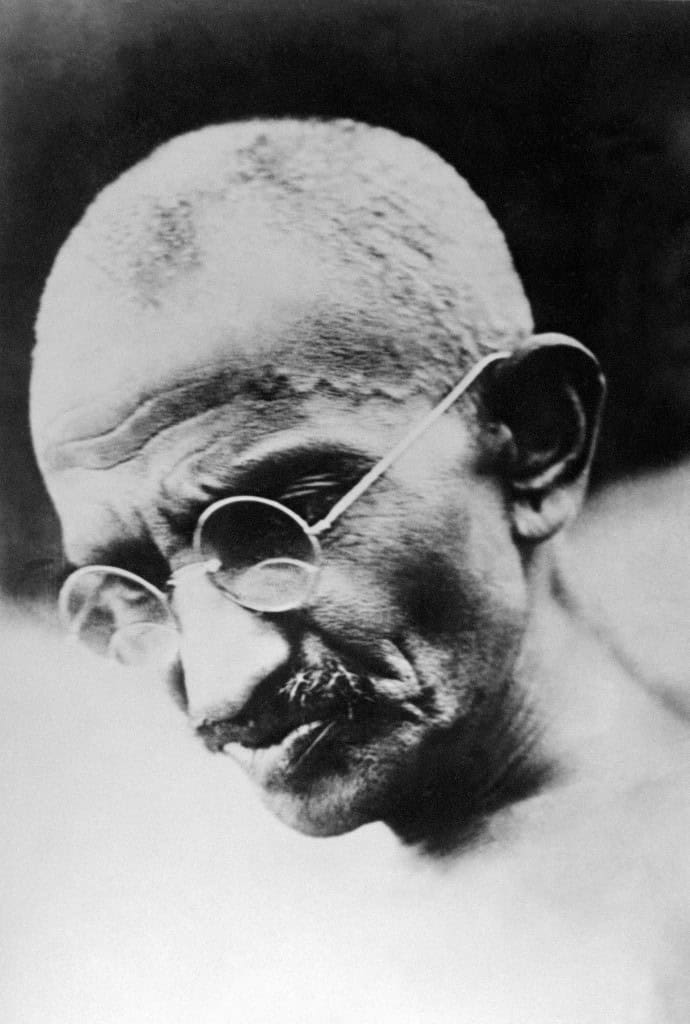
By Hasan Ghias
Shortly after 5 pm on Friday 30th January 1948, three bullets fired point blank from Godse’s pistol took Mahatma Gandhi’s life. He was walking to his daily prayer meeting in the garden of Birla House in Delhi when Godse muscled his way through the crowd, his weapon hidden between the palms of his folded hands. “Hey Ram”, Bapu said as he collapsed.
An ideology of hate killed him; the very same ideology gravely threatens the nation he fathered. We failed to save him from that deadly volley that flowed from Godse’s gun; we must not fail to rescue his idea of India from the deadly volleys that flow with sickening regularity from the words and acts of Godse’s ideologues who wish to destroy everything he stood for.
At his assassination trial, Nathuram Godse declared defiantly “I declare here before man and God that in putting an end to Gandhi’s life I have removed one who was a curse to India, a force of evil…..”. Contrast this with what Albert Einstein wrote soon after this ghastly murder: “The veneration in which Gandhi has been held throughout the world rests on the recognition that in our age of moral decay he was the only statesman who represented that higher conception of human relations in the political sphere to which we must aspire with all our power.” Godse was hanged, but his ideology is alive and well in the hearts and minds of his followers, their thirst for blood yet unsatiated.
Non-violence, truth, sacrifice and suffering were the arms he used to bring down the world’s mightiest empire. Though he mesmerized and mobilized millions, he sought no position, no privileges, no glory for himself. Born in a well-to-do family, a bar-at-law from England, he could have led a life of comfort and wealth had he chosen to. Instead he chose to live life like a peasant, devoting it to serve the masses and struggling to liberate them from foreign rule. Traveling by foot or in third-class carriages, he lived in the spartan ashrams that he founded. He was a devout Hindu who preached the universal brotherhood of mankind; poles apart from the bigotry and violence that is being incited in the name of Hindutva. He described his concept of Ram Rajya in the following words: “It can be religiously translated as the Kingdom of God on Earth; politically translated, it is perfect democracy in which inequalities based on possession and non-possession, colour, race or creed, or sex vanish; in it land and State belong to the people, justice is prompt, perfect and cheap and, therefore, there is freedom of worship, speech, and the press- all this because of the reign of the self-imposed law of moral restraint.”
Gandhi’s anguish grew as the communal temperature kept rising dangerously in the sweltering summer of 1946. Communal passions boiled over into murderous violence in Calcutta on August 16, the obvious provocation being Jinnah’s call for direct action. For four days and four nights, Calcutta was the scene of ghastly killings as Hindus and Muslims went on the rampage. Not long after, Noakhali in East Bengal saw terrible times as the Hindu minority was murderously targeted. This was soon followed by equally vicious attacks on Muslims in Bihar. Countless lives were lost in this senseless mayhem as the flames of hatred raged uncontrollably across the nation, teetering on the verge of a civil war as the departure of the British rulers and the division of the country seemed imminent realities. Mahatma Gandhi spent four months in Noakhali, trudging along dirt tracks from village to village, in an attempt to douse the fires of hatred that kept the communal cauldrons boiling. To the Muslims he said: “If….you want the Hindus to stay in your midst, you should tell them that they need not look to the military for protection but to their Muslim brethren instead. Their daughters and sisters and mothers are your daughters, sisters, and mothers, and you should protect them with your lives.” He left Noakhali for Bihar to try and pacify passions that were turning humans into fiends. When told that the violence against Muslims in Bihar was in retaliation to events in East Bengal, his response was: “The best succour that Bihar could have given to the Hindus of East Bengal would have been to guarantee with their own lives the absolute safety of the Muslim population living in their midst. Their example would then have told.” At a joint gathering of Hindus, Muslims and Sikhs in Gurudwara Har Mandir in Patna, he said “India today seems an inferno of madness and my heart weeps to see our homes set on fire by ourselves. I find today darkness reigning over India and my eyes vainly turn from one direction to another to see light.”
Mahatma Gandhi was implacably opposed to the idea of partition, which he called the vivisection of India. He desperately wanted to avoid it at all costs and was willing to pay any price to keep India united. As the prospect of Independence crystallized into a certainty and partition became an unavoidable reality, those holding the reins of power and in positions of influence were less and less interested in his advice. At that momentous midnight hour, when huge crowds thronged the streets of Delhi and Nehru spoke of India’s tryst with destiny, Mahatma Gandhi was asleep in Hydari Manzil, an abandoned mansion in Calcutta, unwilling to rejoice in this pyrrhic victory. He had moved into this ransacked haveli along with the Muslim League leader Suhrawardi, who had pledged to support him in his bid to restore peace in Calcutta. Gandhiji’s appeals had a miraculous effect and for almost a fortnight violence abated, only to flare up again on the last day of August. The following night Gandhiji began a fast to be broken only if violence stopped. The next day Calcutta was quiet again. On September 4 at 9.15 pm he broke his fast with a glass of diluted orange juice. He entrained for Delhi on September 7, intending to move on to the Punjab.
The sheer scale of violence in Delhi prevented him from going anywhere else. “Have the citizens of Delhi gone mad? Have they no humanity left in them? Have love of the country and its freedom no appeal for them?” To Sardar Patel, he lamented “What sin must I have committed that He should have kept me alive to witness all these horrors.”
Alas, he had only a few months to live, but was not destined to die before he launched his final fast “This time my fast is not only against Hindus and Muslims but also against the Judases who put on false appearances and betray themselves, myself and society,” he told his grandniece Manuben.
The Indian cabinet rushed to decide in three days what it had been dithering over for months- payment of Pakistan’s share of imperial cash balances. On January 18, he broke his fast when he received a seven-point declaration signed by over one hundred Hindu, Muslim and Sikh leaders promising to live in Delhi like brothers and in perfect amity. But death still stalked, not from the strain of fasting but from the acts of conspiring assassins. On 20th January, a grenade was thrown behind the platform where he was conducting his daily prayer meeting. A young Punjabi refugee, Madanlal Pahwa, was arrested and found to have another grenade in his possession that was intended to be hurled directly at Mahatma Gandhi. His accomplices, which included the would-be assassin, escaped in a waiting taxi. Godse struck again ten days later, and this time he was successful in extinguishing the life of the man he so intensely hated, and India and the world so loved.
Godse’s ghoul is striking again! And again! And again! M.M. Kalburgi, Narendra Dabholkar, Govind Pansare, Gauri Lankesh, Mohammed Ikhlaq, Pehlu Khan, Umar Mohammed, young Junaid, Afrazul, Tabriz and so many others have fallen victim to his evil spirit. His multiple incarnations in different garbs and guises are threatening to tear the fabric of India to shreds. To exorcise his ghost from our midst, we must resurrect Mahatma Gandhi. We must re-dedicate ourselves to Gandhiji’s principles and values, re-discover the power of Ahimsa and Satyagrah, weigh ourselves on his moral scale, follow his path. Therein lies the most powerful antidote that we can find to neutralize the deadly venom that has been injected into the Nation’s body politic by the most unscrupulous of our political class, their cronies and henchmen.
Hasan Ghias is a US-based Business & Organization Development Consultant who writes regularly, among other subjects, on the country of his origin, India.

